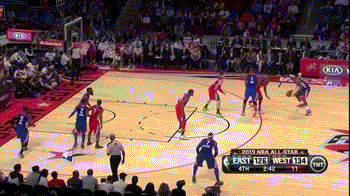- 4,611
- 1,217
- Joined
- Nov 20, 2013
the quality of his opponents in the east are no where close as well.
Neither is Wades. That's why I asked that question this morning. Wade doesn't get the slighted like Bron though. They played in the same conference at the same time.


 ,where's the Dubs haters thread?
,where's the Dubs haters thread? 